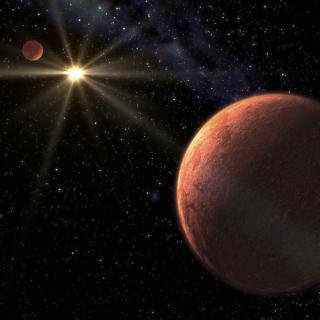Bibcode
Pérez-Garrido, A.; Lodieu, N.; Rebolo, R.; Chinchilla, P.
Referencia bibliográfica
Astronomy and Astrophysics, Volume 620, id.A130, 8 pp.
Fecha de publicación:
12
2018
Revista
Número de citas
7
Número de citas referidas
7
Descripción
Aims: Our aim is to identify substellar members of the nearby
Hyades open star cluster to determine the photometric and spectroscopic
properties of brown dwarfs at moderately old ages and extend our
knowledge of the substellar mass function of the cluster.
Methods: We cross-matched the 2MASS and WISE public catalogues and
measured proper motions to identify low-mass stars and brown dwarf
member candidates in an area of a radius of ten degrees around the
central region of the Hyades cluster. We employed astrometric and
photometric criteria, Gaia data, and a maximum likelihood method
developed by our group to estimate distances. We selected 36 objects
that are candidate Hyades members, 21 of which have not been reported
previously. Results: We have identified 21 new Hyades member
candidates that are placed at the lower end of the main sequence. The
photometry of 9 candidates places them in the substellar regime, and 2
are at the L/T transition. We also recovered a number of L dwarfs from
earlier surveys. Finally, we calculated the mass function for the
low-mass population of the cluster and found that the Hyades cluster
might have lost 60%-80% of its substellar members.
Proyectos relacionados

Estrellas de Baja Masa, Enanas Marrones y Planetas
Se investigan los procesos que conducen a la formación de estrellas de baja masa, enanas marrones y exoplanetas y caracterizar las propiedades físicas de estos astros en varias etapas evolutivas. Las estrellas de muy baja masa y las enanas marrones son probablemente los objetos más numerosos de nuestra Galaxia, pero no por ello están
Rafael
Rebolo López

Exoplanetas y Astrobiología
La búsqueda de vida en el Universo se ha visto impulsada por los recientes descubrimientos de planetas alrededor de otras estrellas (los llamados exoplanetas), convirtiéndose en uno de los campos más activos dentro de la Astrofísica moderna. En los últimos años los descubrimientos cada vez más numerosos de nuevos exoplanetas y los últimos avances
Enric
Pallé Bago